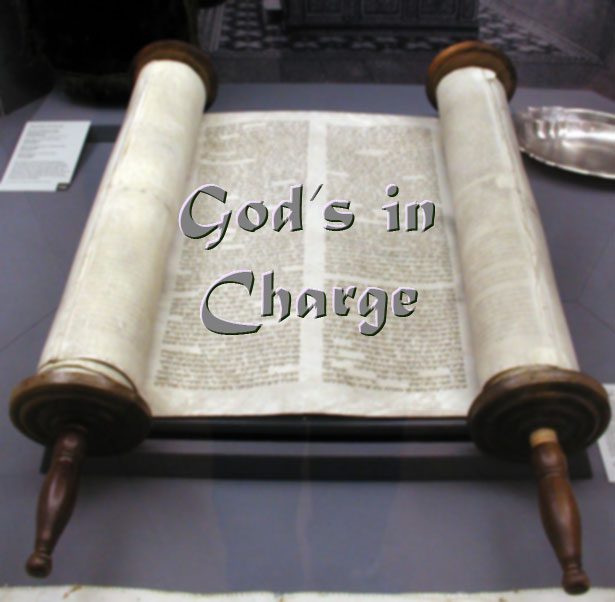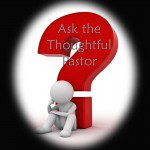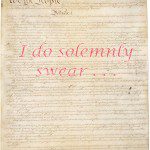
As messy as these multiple forms of beliefs have become, a theocracy would insist upon one, and only one, of those as the “correct” belief system.
Dear Thoughtful Pastor: What is a Theocracy? Does our Constitution allow for a Christian Theocracy?
Democracy means “rule by the people” as “demos”=“the people.” Theocracy means “rule by God” where “theos”=”God.”
God is supreme ruler in a theocracy. God’s laws are the laws of the state, Officials, elected or self-appointed, serve as chosen by God in order to fulfill God’s mandate.
It sounds so good. What could possibly go wrong?
Pretty well everything and the Founding Fathers knew it. Thus the First Amendment to the Constitution of the US:
Congress shall make no law respecting an establishment of religion, or prohibiting the free exercise thereof; or abridging the freedom of speech, or of the press; or the right of the people peaceably to assemble, and to petition the Government for a redress of grievances.
Note two foundational principles. First, there can be no laws in the US that demand a particular religion for everyone. Second, everyone gets to worship the way they want.
Why did the early framers of this experiment in self-rule insist upon this? As students of US history know, a fair number of early immigrants to the “new world” came as a direct result of religious oppression in Britain and Europe.
In Great Britain, the Crown (current King or Queen) also serves as the head of the Church of England (CoE). Dissenters from the CoE could be and were punished, rounded up, tortured and executed.
The Protestant Reformation (early 1500’s) broke up the hegemony of the Roman Catholic Church, long married to the political establishment. The Reformation was fueled by Gutenberg’s printing press. Suddenly any literate person could read the Bible and come up with their own interpretations. Christianity splintered into hundreds, maybe thousands, of radically different belief systems.
As messy as these multiple forms of beliefs have become, a theocratic government would insist upon one, and only one, of those as the “correct” belief system. Those adhering to it would be granted full citizenship rights.
Honest dissenters, atheists and non-believers, those from other Abrahamic traditions (Jews, Mormons, Muslims), or those from Eastern traditions (Hindu, Buddhist, etc) would have to register as such and would be appropriated fewer rights or possibly forced conversions.
As frustrating as religious people find it, prayer had to be removed from public schools. This doesn’t mean students can’t pray. Of course they can. But neither they nor the school or governmental leadership has the right to impose a particular kind of prayer or particular kind of belief system on the students.
Basic morality can be taught: treat one another with kindness, don’t cheat or lie, take responsibility for one’s own actions, etc. These don’t need a particular set of religious dogma to frame them.
But no one group can impose a particular belief system, even if it is the belief system of the majority, upon the entire citizenry of the US without violating the Constitution of the US. Any such attempts would have to be denied by the courts.
Should the US become a theocratically ruled nation, you may be sure that we are no longer a constitutional republic characterized by immense personal freedoms.
Dear Thoughtful Pastor: How do you see today’s political situation in regard to “God’s will being done on earth as it is in heaven”?
Personally, I think they are two separate things. When we conflate “God’s will” with “who won the election and has control over Congress,” we tread on dangerous ground.
To me, this is the same as saying, “My sports team won because God wanted them to.” No, the team won because it played better or had better breaks or the referee was prejudiced or someone cheated and got away with it or any number of other factors.
The fact that one party prevailed in an election over another is not an indication of “God’s will on earth.” If it were, then one party, the one God presumably likes the best, would win all the elections. We could put aside forever the two-party system that has provided a reasonably decent system of checks and balances on unlimited power by just a few.
Again, the US is not a God-ruled country, functioning under a set of undisputed divine mandates handed down on high. The US does have a strong underlying core of religious belief, however.
In the best of worlds, those who profess religious belief provide the entire US, despite the political party in power, with a core of decency, love of God and neighbor, and charitable actions that impact local communities in profound, life-changing ways.
Religious people can and should vote and make their voices heard in the public square. But this is key: in a religiously plural environment, those voices may not necessarily be in harmony. They will often support different political parties and have different understandings of “God’s will” for societal and legal agendas.
 [Note: a version of this column is slated to run in the February 25, 2017, edition of the Denton Record-Chronicle. The Thoughtful Pastor, AKA Christy Thomas, welcomes all questions for the column. Although the questioner will not be identified, I do need a name and verifiable contact information in case the newspaper editor has need of it. You may use this link to email questions.]
[Note: a version of this column is slated to run in the February 25, 2017, edition of the Denton Record-Chronicle. The Thoughtful Pastor, AKA Christy Thomas, welcomes all questions for the column. Although the questioner will not be identified, I do need a name and verifiable contact information in case the newspaper editor has need of it. You may use this link to email questions.]













